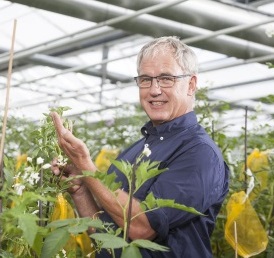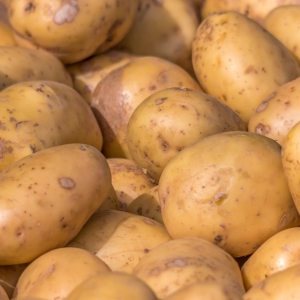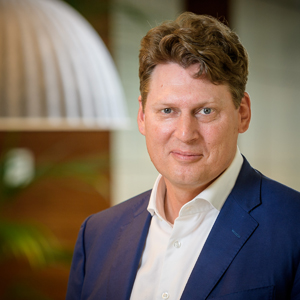Solynta

If all goes to plan, the invention will be considered for the Nobel Prize. Pim Lindhout of Solynta is developing new varieties of potato based on potato seeds rather than propagating material (seed potatoes). This could make a major contribution towards the global food supply.
In 2011, Solynta’s Director Pim Lindhout was almost ridiculed in the sector. The plan for a hybrid breed of potato was considered doomed to fail. His new breeding technology enables high-quality potato varieties to be grown faster, greatly reducing the use of pesticides during cultivation. Because the company, based in Wageningen, works with potato seeds as the stock material rather than the voluminous seed potato, there are also major logistical benefits to be gained. The company has now made such great strides that, this autumn, hybrid potatoes are being commercially trialled for the first time.

‘If we hadn’t been able to patent our technology, it would never have got off the ground.’
Pim Lindhout – Solynta
National Icon
Now, in 2015, there’s plenty of respect for Solynta. The company is a split-off from De Ruiter Seeds and, last year, was named a “National Icon” by the Ministry of Economic Affairs, an official recognition for the most impressive new innovations. Lindhout explained: “Following this recognition, we drove straight to the studio of Dutch television programme De Wereld Draait Door.” He has deliberately courted the media in recent years: “Investors from the market are always looking for signs that the invention really does work and has potential. You can’t convince them of that if you spend all your time tinkering away quietly in your shed.” Various investors are now on board.
Hybrid potatoes
The potato is one of the most important food crops in the world. The economic potential of Solynta’s invention is huge. Lindhout added: “This invention will improve global food security. If everything goes to plan then, in two years, we will be able, for instance, to incorporate double resistance against potato blight – something which would normally take thirty years.” There is now a great deal of interest in the product from the professional potato sector, including breeding companies, processing companies and global biotech players.
Patents

“I’m the father of the hybrid potato”, explains Lindhout, “so I’m in a good position to explain what the technology involves. But the language I use is far from ideal for a patent application, so I’m happy to leave that to V.O. It was a tough process. You have to explain the novelty and provide convincing evidence. One of the ways we did this was to get specialists around the world to explain that our technology is revolutionary. It was crucial to obtain a patent; if we hadn’t been able to patent our technology, it would never have got off the ground.”


